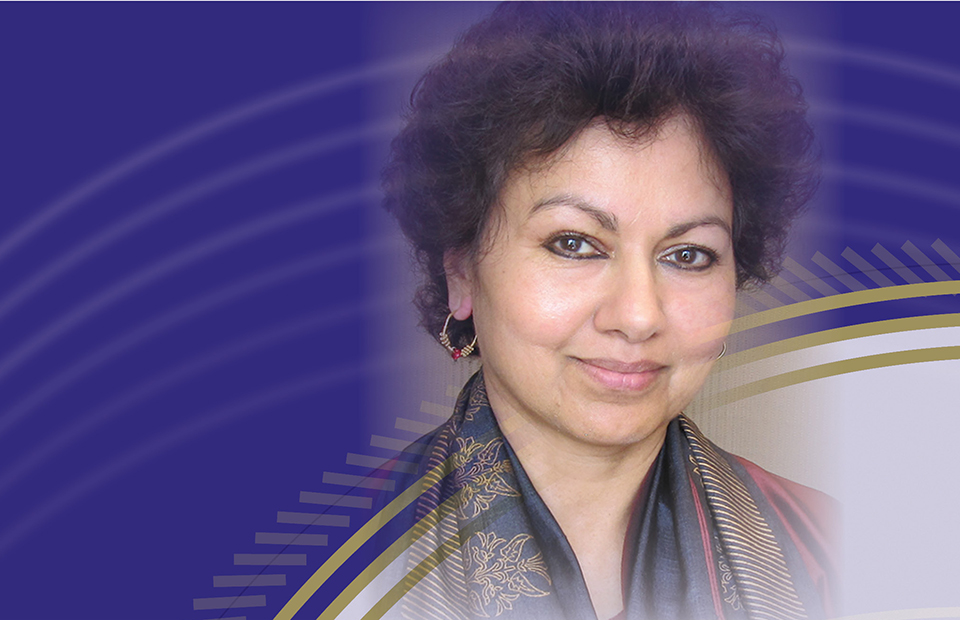
Greetings from the Commonwealth of Learning or COL. COL is an intergovernmental organisation established by Commonwealth Heads of Government when they met in Vancouver in 1987. We are very privileged to be in beautiful British Columbia and thank our hosts the Government of Canada for making this possible. What does COL do?Our mission is to help Commonwealth Member States and institutions to harness the potential of distance education and technologies for expanding access to education and training.
I was happy to learn that you have chosen to focus on gender equality and youth in the Commonwealth, two themes that are very close to COL’s heart. We have a very young Commonwealth, where 60% of the population is under the age of 30. And when I think of young people like you, technology and learning come to mind- two keys that could open many other doors.
Technology and knowledge are multiplying at a rapid pace, even in developing countries. The number of mobile subscriptions worldwide is approaching the number of people on earth which is almost seven billion. Studies estimate that mobile penetration has reached 90 per cent in developing countries. Internet usage has also increased and 40 per cent of the world’s population is now connected; two-thirds of them are from the developing countries.
As heads of government and foreign ministers, I know that you’ll be making important recommendations in your communique on how to improve the situation of young people in the Commonwealth. Let me share with you three examples of COL’s work that might trigger off ideas that could help shape those recommendations.
First, the low cost and high ownership of mobile phones, has provided COL with an opportunity to engage many young people, especially women in rural areas. Through COL’s Lifelong Learning for Farmers programme, rural women have used their basic mobile phones to learn and to access opportunities for livelihoods.
Here is Valarmathy from India. She could not complete primary school but learned the intricacies of financial management and goat husbandry using her mobile phone, and she learned in her own language. Today she is a business correspondent for a major commercial bank and makes enough money to support herself and send her children to school.
Second, COL’s Aptus, or the Classroom Without Walls, is a technological innovation that is reaching the unreached. It uses solar power and wireless router, so you don’t really need connectivity; yet, it provides teachers and students access to good quality digital materials such as Wikipedia for Schools and a whole library of free books and videos. This low-cost device has provided valuable learning opportunities to young people in rural areas without any internet access. In the aftermath of Cyclone Pam, which, as you know, devastated many Pacific islands, the ministry of education deployed Aptus to ensure that young people could continue to learn even when their schools were closed.
Third, COL has employed appropriate technologies to help youth develop technical and vocational skills. One partnership in Kenya led to the development of a construction and building course meant for young people. Eunice Maganga who was a participant of this course. She wanted to be a construction worker like her father and through this course was able to contribute to her family income and pay for her college fees for further training.
I hope these examples have demonstrated the ways in which the creative use of appropriate technologies can create learning opportunities for young people, particularly women and girls. More than ever before, youth in the Commonwealth will need to continue to learn, unlearn and re-learn many different things during the course of their lives. You will need to be lifelong learners if you are to contribute to the sustainable development of your society.
During your deliberations today, please consider the value that learning and technology can have for empowering women and youth in the Commonwealth.
So your Excellencies, Commonwealth Heads of Government and Honourable Foreign Minister, thank you for listening and good luck with your deliberations.


